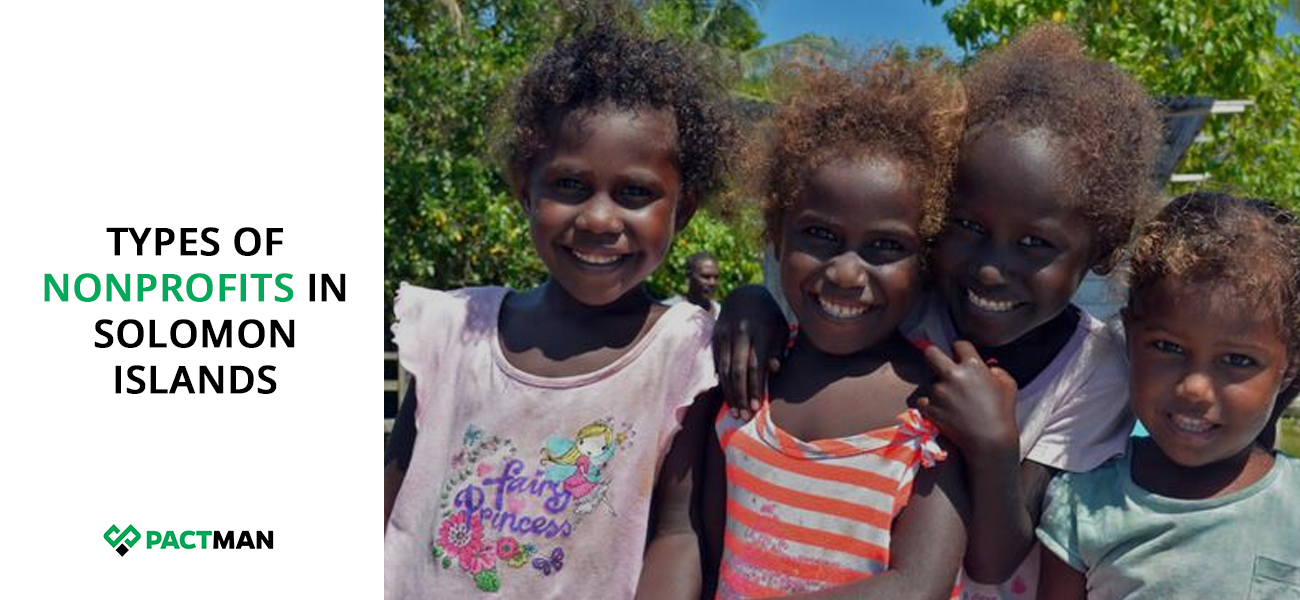In the Solomon Islands, village and clan groups predated churches as the earliest kind of societal structure. Presently, these groups have evolved and constitute some of the various types of nonprofits spread across the nation.
However, the chief system before colonialism is still in place today. Kastom, which means “tradition,” “custom,” or “customary law” is sometimes used as a metonym for “main system.” This continues to inform systems in the nation.
Kastom is a flexible idea that is local and embodies the uniqueness of many communities. Despite being more brittle in many places, it describes the traditions and standards that govern community life in the Solomon Islands.
In this article, we will consider the various types of nonprofits in the Solomon Islands and their operations.

- NGOs complement the efforts of the government in the nation to bring about social development.
- Hence, nonprofits are a critical component of a nation’s growth.
- The church is a sizable and significant part of civic life on Solomon Island.
What are the types of nonprofits in the Solomon Islands?
The Solomon Islands recognizes three nonprofit classes. We will briefly describe each of these entities and the rules governing their activities.
1. Cooperative Societies
Since its inception, consumer cooperatives in the form of rural trade stores have been the main focus of cooperative development in the Solomon Islands. Also, in the country, these types of nonprofits are acknowledged as a valid category of commercial organization.
When individuals create a cooperative enterprise, their goal is to support one another such that all rewards are distributed evenly.
The Co-operative Societies Act demands that nonprofits must be registered before they can commence operation. Likewise, a registry of them must be kept by the Business and Cooperatives Development Unit. In general, the Registrar of Cooperative Societies is in charge of carrying out this duty.
2. Charitable Trusts
Charitable Trusts in Solomon Island are governed by the Charitable Trust Act. They comprise organizations that undertake religious, educational, literary, scientific, social, or charitable objectives. Hence, these types of nonprofits must apply to the Registrar of Companies for a certificate of registration of the trustees.
If the Registrar of Companies determines that incorporation is appropriate based on the association’s size, goals, and other circumstances, he or she will grant the application. Afterwards, the said trustees shall become a body corporate under the name outlined in the certificate.
As soon as the Trustees of an association are incorporated, ownership of all property, whether personal or real and regardless of type or tenure, belonging to or held in trust for that association is bestowed on that board of trustees.
3. Community Company
A community company represent the recent class of corporation in the Solomon Islands. These types of nonprofits exist to further a shared interest. It also serves as an alternative to other forms of nonprofits frequently employed, such as trusts.
A community company operates normally on a day-to-day basis. However, there are some additional measures put in place to make sure that the community benefit is safeguarded. For instance, the firm cannot lend money to its shareholders or directors, nor can it sell its assets without the consent of the local community. The board must also create a report every year outlining how the company’s operations have benefited the neighborhood.
By and large, the company’s community interest must serve a distinct group of people who have a common trait. This could, for instance, refer to a group of tomato producers or individuals from a specific hamlet. The goal of the community company is to make sure that everyone in the community benefits from running the business and not just a small group of individuals.
Community Companies can adopt the model rules outlined in the new Companies Act.
What constitutes the activities of nonprofits in the Solomon Islands?
The various types of nonprofits in the Solomon Islands comprise a broad spectrum of associations. This includes church organizations, civic organizations, women’s organizations, disability organizations, agricultural or farmers associations and environmental organizations. A few others comprise community and youth organizations, sports clubs, trade unions, and advocacy and governance organizations.
Also, there is a variety of membership and non-membership based nonprofits. This includes those founded for the benefit of the public and those founded to help their members. Many organizations, especially those that primarily serve the community, are not registered as NGOs. However, there are several other registered organizations in the Solomon Islands.
Not to mention, the church is a sizable and significant part of civic life in the country. There are numerous denominations and faiths, and 98% of the population identifies as Christian.
The Solomon Islands’ overarching, coordinating body for civil society, the DSE, was established in 1984. The goal of DSE is to improve Solomon Islands-wide NGO coordination.
Conclusion
Some of the nonprofits in Solomon Island are known to collaborate with the government on a variety of projects. The Coral Triangle Initiative is a good example of one such collaborative project.
NGOs complement the efforts of the government in the nation to bring about social development. Hence, nonprofits are a critical component of a nation’s growth.
If you enjoyed reading this article, please share your comments and suggestions with us at the bottom of this post.


